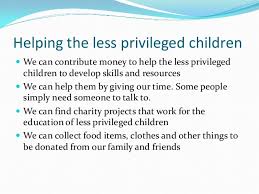Justice for the Victim under the Administration of Criminal Justice System

Dinne Israel Chukwuemeka
It was the Honourable Justice Chukwudifu Oputa in the case of JOSIAH V STATE (1985)1NWLR PT 125, that said: “any order allowing this appeal and also acquitting and discharging the appellant will not be an order made in the interest of Justice and Justice is not a one way traffic, it is not justice for the appellant only. justice is not even only a two way traffic, it is really a three way traffic – Justice for the appellant accused of a heinous crime of murder;
Justice for the victim, the murdered man, the deceased whose blood is crying to heaven for vengeance and finally Justice for the society at large – the society whose social norms and values had been desecrated and broken by the criminal act complained of.
It is certainly in the interest of Justice that the truth of this case should be known and that if the appellant is properly tried and found guilty, that he should be punished. That Justice which seeks only to protect the appellant will not be even handed justice. It will not even be justice tempered with mercy”
The above squarely represents the purpose of the Administration of Criminal Justice Act 2015 (ACJA) as provided in its Section 1 (1):
‘’The purpose of this Act is to ensure that the system of administration of criminal justice in Nigeria promotes efficient management of criminal justice institutions, speedy dispensation of justice, protection of the society from crime and protection of the rights and interests of the suspect, the defendant, and the victim.’’
A brief consideration of few crimes (having in mind that there is hardly any commission of crime without a victim) will show that indeed there is no justice to the victim in the administration of criminal justice.
A crime/an offence is generally said to be committed against the State but we know that it is the individuals that makes up and forms the State and invariably perpetrates these crime (the defendant) or suffers the consequence of these actions that are criminal (the victim).
In administering justice on these acts, it is the case almost always, that either the defendant with the aid of a ‘’good’’ Counsel coupled with the usual ‘’lack of diligent prosecution’’ of the prosecutor is laid off the hook to walk the streets free or upon conviction, he/she is sent to the prison for a term. Close to justice for the victim (if still alive) is as provided in Part 32 of the ACJA, housing Sections 319 – 328 which deals with Costs, Compensation, Damages and Restitution.
However, a perusal of the above part will show that same is not enough in any way to assuage the pain, agony, depression and loose the victim may have to go through. Taking the case of rape for instance, what compensation could be enough for a forcefully and unapproved carnal knowledge with its attendant ills?
What jail term will be due and commensurate with the death suffered by a murder victim (the deceased)? Against who is offence of kidnapping, burglary, endangering life and health, abuse of office and more done to?
Under the economic and financial crimes, the victim most times is the state who may have lost the tax payers money under its control but upon conviction, most forfeiture are to the best of the prosecuting authorities as against the victim.
At the end of the ‘’delayed and protracted litigation’’ that attends to the prosecution most times due to the calibre of persons involved and the ‘’behind the scene accomplice and accessories after the fact’’ the victim of the crime is mostly forgotten along the way while the proceedings sojourns through the wilderness that when the Officers will report to Moses thus:
“We, your servants, have accounted for all the men who went out to battle under our command; not one of us is missing!’’, only the Victim here will not be accounted for, because his case must have succeeded in making money for the prosecution,
the defendant may have enter into a plea bargain with the prosecution and it may end up that ‘’when all Israel saw (see) that the king refused to listen to them, they answered the king: “What share do we have in David, what part in Jesse’s son?
To your tents, oh Israel! Look after your own house, David!” So the Israelites (the victim in this case) went (goes) home.
It has been argued in several quarters that most perpetrators of crimes in the society are persons who had once been victims of these crimes and left without a remedy. The presumed corrective method of our prison system is also not helping to reduce the ills of the society as most convicts comes out more hardened and more determined to do worse since they have seen the much they stand to suffer.
Does this call for a new law in the administration of criminal justice system? Do we go back to the proverbial days of an eye for an eye? Do the Bench and the Bar need to be more proactive in the presence of these numerous laws at our disposal to ensure that justice is done though the heavens fall,
however the truth of course remains that when justice is been done, the heavens stay in place as rightly said by Adesola Oguntade JSC in Amechi V. INEC & 2 Ors (2008) 5 NWLR (Pt 1080) pg. 227 @315.
May justice indeed be a three – way traffic; to the victim, the defendant and the society as it is only at that point that our society can thrive and make progress in combating crime.







